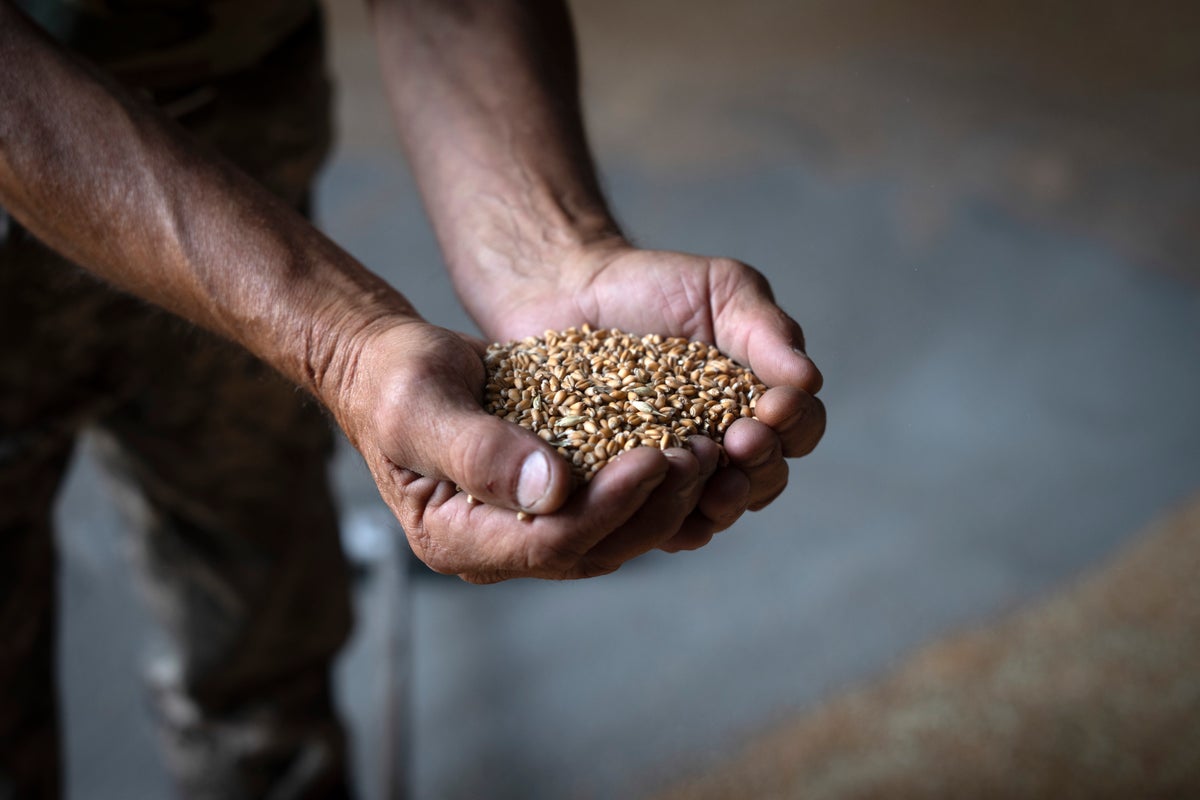
Poland has said it will stop exporting weapons to Ukraine as a week of escalating tensions between the two countries reached boiling point over a ban on grain imports.
Prime minister Mateusz Morawiecki said he would instead invest the money in arming Poland, which has been one of Ukraine’s staunchest allies since Russia invaded last year, with the most “modern weapons”.
The row between the neighbouring countries began last week when Poland imposed an import ban on Ukrainian grain, including wheat and maize, after an EU-brokered deal expired.
The deal, which ended on 15 September, allowed Poland, Bulgaria, Romania, Hungary and Slovakia to ban the sale of Ukrainian grain, which they claim has flooded the European market and undercut domestic grain prices since Putin’s invasion, damaging their economies.
But Ukraine launched a legal challenge at the World Trade Organisation (WTO) on Monday after Poland reinstated the ban, claiming the country had failed to meet its “international obligations”.
Days after, Ukrainian president Volodymyr Zelensky told the United Nations General Assembly that “some friends in Europe” were feigning solidarity by indirectly supporting Russia by banning the sale of its grain.
Poland then summoned the Ukrainian ambassador to its foreign ministry to protest against Mr Zelensky’s comments. Hours later, Warsaw announced it would no longer be supplying weapons to Ukraine.
“We are no longer transferring weapons to Ukraine because we are now arming Poland with more modern weapons,” the prime minister said.
While the country claimed Ukrainian authorities “do not understand” the extent to which Poland’s farming industry has been “destabilised”, one expert claimed Poland was “losing its nerve”.
Ukrainian president Volodymyr Zelensky arrives to address the 78th United Nations General Assembly at UN headquarters— (AFP via Getty)
“Poland is losing its nerve. It seems people are starting to get tired of the war, because there has been no breakthrough, there are corruption scandals, and Ukrainian grain imports are damaging the economy,” Dr Marina Miron, post-doctoral researcher at King’s College London war studies department, told The Independent.
She explained that Poland’s general election on 15 October was crucial in explaining the ban. In recent weeks, Poland’s Law and Justice party has stepped up its rhetoric supporting farmers in recent weeks.
“Poland is in its pre-election stage and needs to ensure domestic support,” Dr Miron added. However, Poland’s state assets minister Jacek Sasin claimed the row over grain imports did not mean Poland had ceased to back Ukraine against Russia.
“At the moment it is as the prime minister said, in the future, we will see. In this case, Polish interests come first,” he said. “We cannot disarm the Polish army, we cannot get rid of the weapons that are necessary for our security.”
One expert claimed Poland was ‘losing its nerve’— (AP)
“Where we could arrange for the transfer of weapons, we did it and we were very generous in this matter. Here we have absolutely nothing to reproach ourselves with.”
Poland has previously sent 320 Soviet-era tanks and 14 MiG-29 fighter jets to the war-torn country. Mr Morawiecki also issued a warning to Kyiv, saying that if they “escalate the conflict”, additional products will be added to the list of banned imports.
He said: “I am warning Ukraine’s authorities. Because if they are to escalate the conflict like that, we will add additional products to the ban on imports into Poland.”
Poland’s decision has been criticised around the world. Donald Tusk, former president of the European Council, accused Morawiecki and other ruling authorities of a “moral and geopolitical scandal of stabbing Ukraine in the back politically when they decide to fight on the Ukrainian front, just because it will be profitable for their campaign.”
Michal Baranowski, a security and defence expert, added: “The message is very bad, both for Poland’s reputation but also because Poland has been one of the chief advocates of military aid to Ukraine. Saying Poland will not be sending more weapons means that Poland can no longer play this role.”







